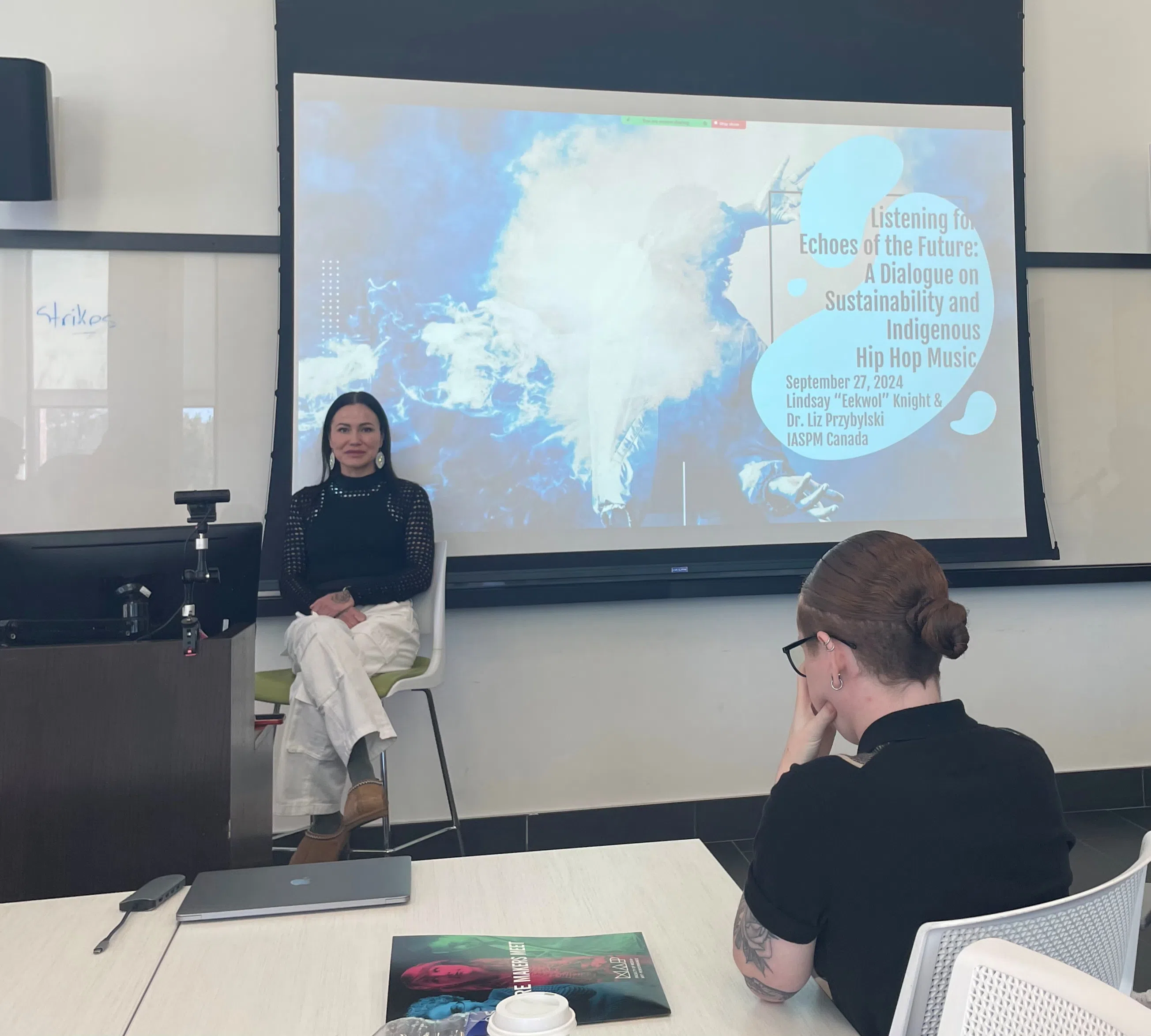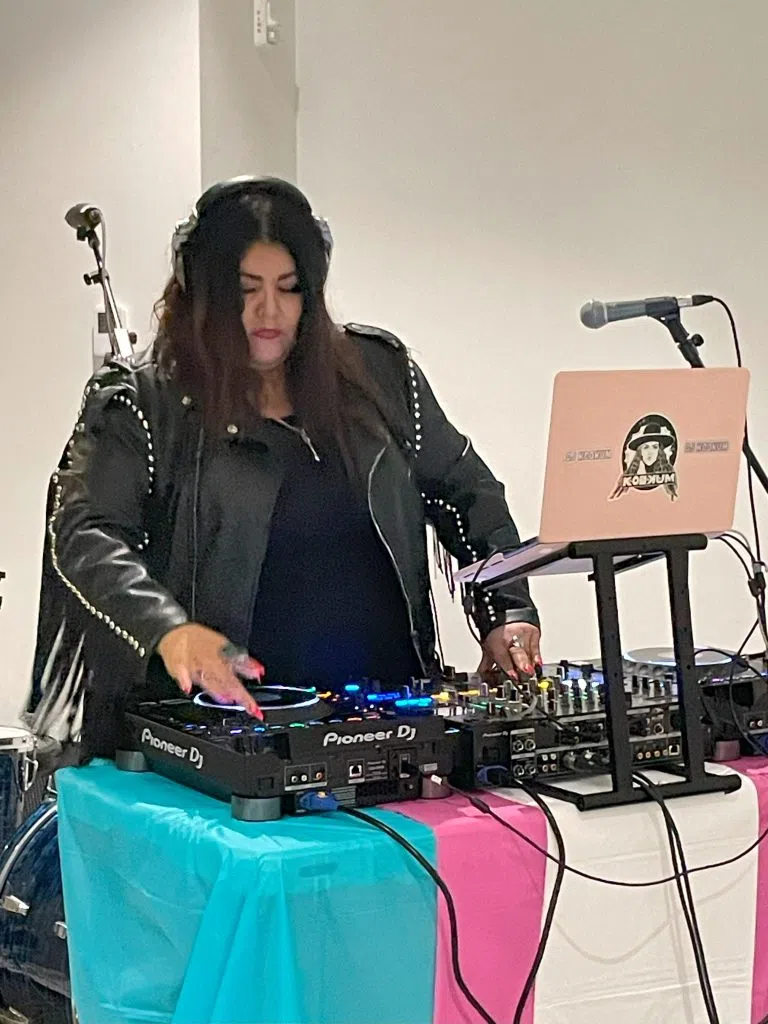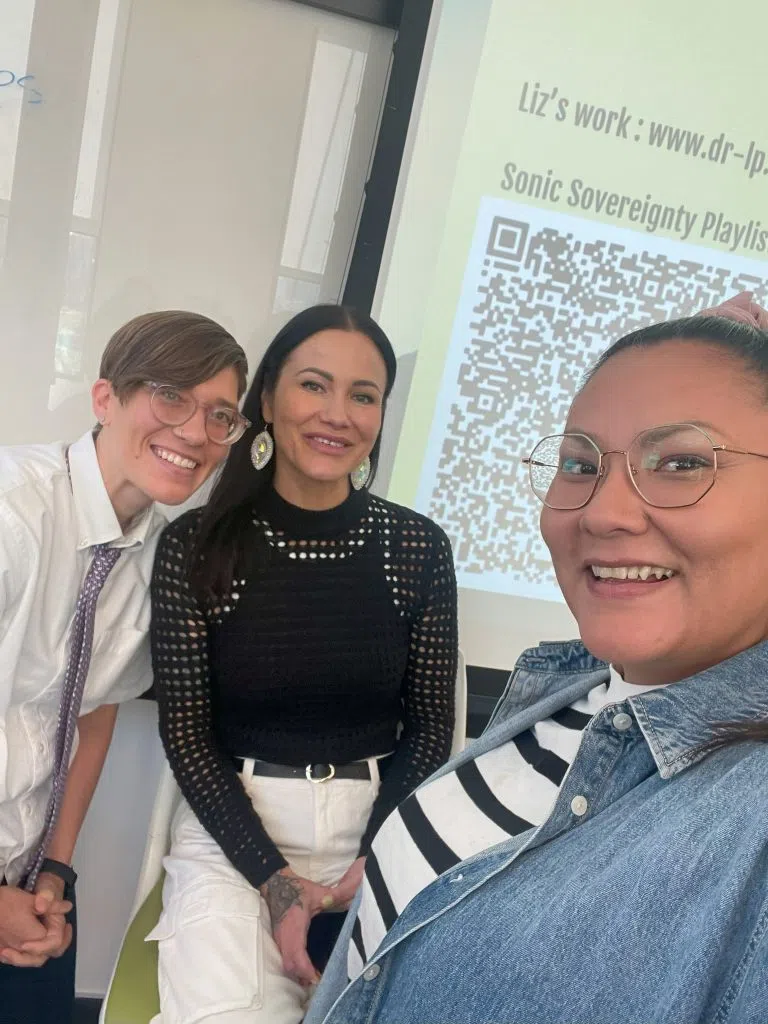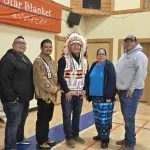
Building Collective Futures: Reflections from the IASPM Canada Conference 2024
As the EFN’s Arts and Fashion Correspondent one of my first events I attended for EFN Media was the Building Collective Futures: Communities Thriving Through Music conference, held at the University of Regina from September 26–29 to explore how music, storytelling, and collaboration can shape thriving futures for diverse communities.
Hosted by the International Association for the Study of Popular Music Canada (IASPM) and led by Dr. Charity Marsh, the goal was to bring together artists, academics, and cultural practitioners to discuss how the concept of collectivism is evolving within the music industry.
This is how it went.
It was a unique experience because it raised critical questions about inclusivity, allyship, and the power structures shaping the music industry.
During the four-day event, artists, academics, and musicians explored how music and creativity can inspire thriving communities.
As a First Nations woman and artist, I was particularly drawn to the panel on Beats and Voices: DJ & Dance Music Cultures in Turtle Island Canada, featuring DJ Kookum, Quanah Style, and DJ Betti Forde and moderated by Marsh.
It highlighted the deep connections between collaboration, self-expression, and sustainability in the music industry.
Each panelist shared their personal experiences. DJ Kookum spoke about balancing motherhood and touring while Quanah Style shared her journey as a transgender First Nations artist breaking barriers in film and music.

A recurring theme throughout the discussion was the importance of creating safe spaces—especially for femme artists.
Quanah described the art of collaboration as a “gift” in her community and emphasized the need for inclusivity, while DJ Betti Forde spoke about pushing back against patriarchal standards that often divide people in the industry.
The conversations sparked reflections on the role of collectivity, not just in the music world but in our broader societal struggles for equality.
One issue I couldn’t ignore was the lack of diversity in the room, both in terms of representation and perspective.
While we discussed hip hop’s influence in Indigenous cultures and beyond, I wondered aloud whether it was appropriate for this discussion to lack Black representation, given the genre’s origins.
Has hip-hop transcended race, or is it being co-opted in academic and cultural discussions?
These questions speak to a larger tension I felt throughout the conference: Who gets to be the expert, and how do we balance the desire for inclusivity with the reality of power dynamics?
As First Nations people, we are often treated as subjects of study rather than equals in these spaces. Non-Indigenous researchers frequently approach our communities with curiosity, yet our voices and expertise are often missing at the tables where decisions are made.
During a presentation titled The Sound of Sovereignty: Gender and Creativity in Indigenous Hip Hop by Dr. Liz Przybylski and Lindsey “Ekwol” Knight, we explored Indigenous self-determination through sound.
Lindsey, a First Nations hip-hop artist and professor, shared how her Cree upbringing influences her music. She also spoke on the importance of Indigenous resurgence and the need to create spaces where our stories are centered—not as an academic exercise, but as a form of living sovereignty.
I posed the question: Does non-Indigenous research regarding the Indigenous experience do more harm than good?
While allyship can certainly help marginalized communities push through barriers, we must ask whether this research is being conducted in ways that reinforce colonial power structures.
Decolonizing research is crucial, and it starts with recognizing the uneven dynamics at play when our cultures are studied without our direct input and leadership.
There was much to take away from this conference.
I was inspired by the conversations around the intersection of art, music, and politics, and the ways in which music transcends barriers to foster understanding and solidarity.
DJ Kookum’s remark that “you can tell your story through music” particularly resonated with me. Music, like storytelling, is a tool of resistance, a way to assert sovereignty, and a means of healing.
However, while the discussions were powerful, they also highlighted the work that remains to be done. Collectivism and collaboration are essential to creating a future where communities can thrive, but this requires true representation.
I left the conference feeling hopeful but also acutely aware that if we are to build these collective futures, we must do so with a more intentional commitment to inclusivity—especially concerning Indigenous representation.


